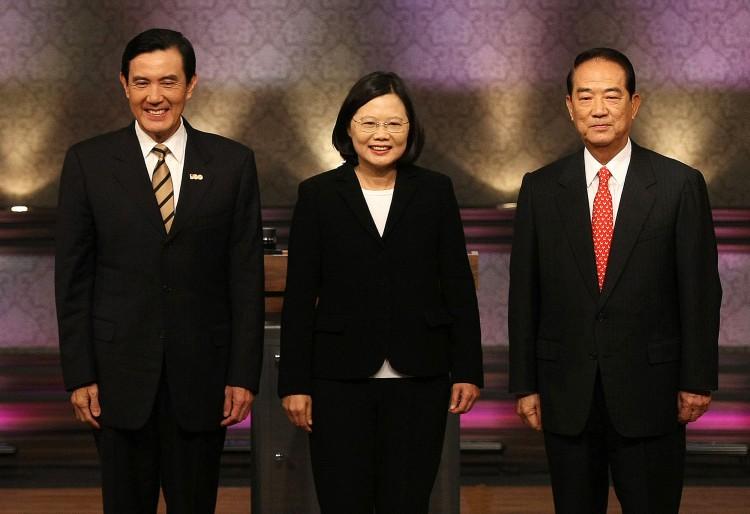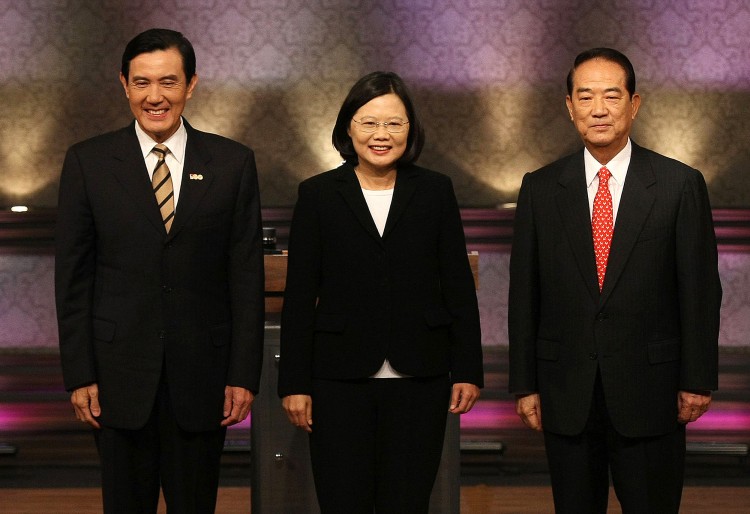Taiwan’s presidential election debates, which started in early December 2011, have been an eye opener and lesson in democracy for mainland Chinese, and have generated enthusiastic discussions on China’s Internet.
In an unprecedented move, the four most popular Chinese web portals, Tencent, Sina, NetEase and Sohu, have all featured special sections of Taiwan’s election this year, with real-time coverage and even providing live broadcast of the election debates.
Links to video and full text reports of the debates can be seen everywhere on China’s Internet forums, microblogs, and in chat rooms.
Watching Taiwan’s presidential election debates, election campaign and advertisement through the Internet has had a huge impact on mainland Chinese, says Kong Shiren, the deputy secretary general of the Democratic Party of China, who currently lives in Taiwan.
“Living in communist-ruled China, although Chinese people know about Western countries’ elections, due to language barriers, they have no idea how it is accomplished,” Kong told The Epoch Times.
“However, they don’t have a language barrier to understand Taiwan’s election, and feel that it’s real and relate to it,” he added.
Kong said, the presidential candidates appearing on TV to debate their opponents while expressing their political views has impressed many mainland Chinese, prompting some to ask, “Why can Taiwan do it, and we cannot?”
Writer Ding Dong published an article on chinaelections.org asking: “When can we, too, become proud voters to whom the presidential candidates must pay respect and work hard in order to win our votes? We are all Chinese, why is it that we have huge differences in our political rights? Why can’t we have the same rights just as those in ‘underdeveloped’ societies enjoy?”
Blogger “Turbulence and Reform” said on Sina microblog: “I do not believe the leaders of mainland China have the intention for political reform. If they did, China Central Television should broadcast Taiwan’s elections live for the people to see how elections are being carried out in Taiwan.”
Some netizens think that in terms of personality, eloquence, morality and knowledge, the mainland Chinese leaders are far inferior to the three Taiwanese presidential candidates.
“If one day Hu Jintao and Ma Ying-jeou [Taiwan’s president] were to debate each other, Hu would for sure be defeated and speechless,” one blogger wrote.
“It’s a tough job to be a top leader in Taiwan. They would be better off coming to the mainland and become a county level, township level, or even a village level party secretary,” blogger Zeng Guanhua said.
Netizen Jerry said he was in tears after watching the debates, because the most frequently used word by the three candidates was “folks.” It’s so unlike the party lingo “comrades, leaders, and general public,” which denotes class-consciousness in a communist-ruled country, he said.
Guo Yongfeng, a democracy advocate from Guangdong Province, told Sound of Hope (SOH) Radio that Taiwan is a perfect role model for China because it is a country by the people and for the people. The Chinese Communist regime governs the people by pointing guns at them, so the people must bow down; whereas in Taiwan, presidential candidates must bow to people in order to win their votes.
An article on Singapore’s Lianhe Zaobao said Taiwan’s presidential debate has become a live teaching course on democracy for mainland Chinese.
Some mainland Chinese students and organizations have visited Taiwan for the elections, according to Professor Jin-hua Zhang from the Graduate Institute for Journalism at National Taiwan University. She told The Epoch Times that a university instructor from Hong Kong brought 120 students to Taiwan to observe the elections, and 70 to 80 percent of them were from mainland China, indicating that they are keenly interested in experiencing Taiwan’s elections and learning about Taiwan’s democratic system.
Some Hong Kong youths are also forming groups to visit Taiwan. A travel agency in Hong Kong even offered a “dual-viewing tour”--watching the scenery and the elections.
The news media department of a Hong Kong university organized an 80-person group for people wanting firsthand coverage of the Taiwan elections.
“After watching the 2012 Taiwan presidential debate, I think the Taiwanese, for sure, do not want unification with China,” one blogger wrote.
Cao Changqing, a political commentator living in America, told SOH that not long ago a businessman from Shanghai asked if Taiwan’s democracy could rule China. Cao said he believes that this is the hope of many Chinese.
Han Zhiguo, economist and head of Beijing Banghe Fortune Research Institute, wrote on his microblog: “The deciding factor of Taiwan’s future is the people. This is the main difference between Taiwan and China. If China does not go through political reform, it will be a long time for China and Taiwan to unify.”






